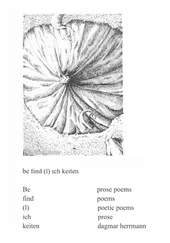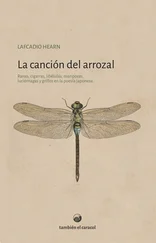As she uttered these last words, she fell unconscious.
Nagao married her; and the marriage was a happy one. But at no time afterwards could she remember what she had told him in answer to his question at Ikao: neither could she remember anything of her previous existence. The recollection of the former birth,—mysteriously kindled in the moment of that meeting,—had again become obscured, and so thereafter remained.
Table of Contents
Three hundred years ago, in the village called Asamimura, in the district called Onsengori, in the province of Iyo, there lived a good man named Tokubei. This Tokubei was the richest person in the district, and the muraosa, or headman, of the village. In most matters he was fortunate; but he reached the age of forty without knowing the happiness of becoming a father. Therefore he and his wife, in the affliction of their childlessness, addressed many prayers to the divinity Fudo Myo O, who had a famous temple, called Saihoji, in Asamimura.
At last their prayers were heard: the wife of Tokubei gave birth to a daughter. The child was very pretty; and she received the name of Tsuyu. As the mother's milk was deficient, a milk-nurse, called O-Sode, was hired for the little one.
O-Tsuyu grew up to be a very beautiful girl; but at the age of fifteen she fell sick, and the doctors thought that she was going to die. In that time the nurse O-Sode, who loved O-Tsuyu with a real mother's love, went to the temple Saihoji, and fervently prayed to Fudo-Sama on behalf of the girl. Every day, for twenty-one days, she went to the temple and prayed; and at the end of that time, O-Tsuyu suddenly and completely recovered.
Then there was great rejoicing in the house of Tokubei; and he gave a feast to all his friends in celebration of the happy event. But on the night of the feast the nurse O-Sode was suddenly taken ill; and on the following morning, the doctor, who had been summoned to attend her, announced that she was dying.
Then the family, in great sorrow, gathered about her bed, to bid her farewell. But she said to them:—
"It is time that I should tell you something which you do not know. My prayer has been heard. I besought Fudo-Sama that I might be permitted to die in the place of O-Tsuyu; and this great favor has been granted me. Therefore you must not grieve about my death... But I have one request to make. I promised Fudo-Sama that I would have a cherry-tree planted in the garden of Saihoji, for a thank-offering and a commemoration. Now I shall not be able myself to plant the tree there: so I must beg that you will fulfill that vow for me... Good-bye, dear friends; and remember that I was happy to die for O-Tsuyu's sake."
After the funeral of O-Sode, a young cherry-tree,—the finest that could be found,—was planted in the garden of Saihoji by the parents of O-Tsuyu. The tree grew and flourished; and on the sixteenth day of the second month of the following year,—the anniversary of O-Sode's death,—it blossomed in a wonderful way. So it continued to blossom for two hundred and fifty-four years,—always upon the sixteenth day of the second month;—and its flowers, pink and white, were like the nipples of a woman's breasts, bedewed with milk. And the people called it Ubazakura, the Cherry-tree of the Milk-Nurse.
Table of Contents
It had been ordered that the execution should take place in the garden of the yashiki. So the man was taken there, and made to kneel down in a wide sanded space crossed by a line of tobi-ishi, or stepping-stones, such as you may still see in Japanese landscape-gardens. His arms were bound behind him. Retainers brought water in buckets, and rice-bags filled with pebbles; and they packed the rice-bags round the kneeling man,—so wedging him in that he could not move. The master came, and observed the arrangements. He found them satisfactory, and made no remarks.
Suddenly the condemned man cried out to him:—
"Honored Sir, the fault for which I have been doomed I did not wittingly commit. It was only my very great stupidity which caused the fault. Having been born stupid, by reason of my Karma, I could not always help making mistakes. But to kill a man for being stupid is wrong,—and that wrong will be repaid. So surely as you kill me, so surely shall I be avenged;—out of the resentment that you provoke will come the vengeance; and evil will be rendered for evil."...
If any person be killed while feeling strong resentment, the ghost of that person will be able to take vengeance upon the killer. This the samurai knew. He replied very gently,—almost caressingly:—
"We shall allow you to frighten us as much as you please—after you are dead. But it is difficult to believe that you mean what you say. Will you try to give us some sign of your great resentment—after your head has been cut off?"
"Assuredly I will," answered the man.
"Very well," said the samurai, drawing his long sword;—"I am now going to cut off your head. Directly in front of you there is a stepping-stone. After your head has been cut off, try to bite the stepping-stone. If your angry ghost can help you to do that, some of us may be frightened... Will you try to bite the stone?"
"I will bite it!" cried the man, in great anger,—"I will bite it!—I will bite"—
There was a flash, a swish, a crunching thud: the bound body bowed over the rice sacks,—two long blood-jets pumping from the shorn neck;—and the head rolled upon the sand. Heavily toward the stepping-stone it rolled: then, suddenly bounding, it caught the upper edge of the stone between its teeth, clung desperately for a moment, and dropped inert.
None spoke; but the retainers stared in horror at their master. He seemed to be quite unconcerned. He merely held out his sword to the nearest attendant, who, with a wooden dipper, poured water over the blade from haft to point, and then carefully wiped the steel several times with sheets of soft paper... And thus ended the ceremonial part of the incident.
For months thereafter, the retainers and the domestics lived in ceaseless fear of ghostly visitation. None of them doubted that the promised vengeance would come; and their constant terror caused them to hear and to see much that did not exist. They became afraid of the sound of the wind in the bamboos,—afraid even of the stirring of shadows in the garden. At last, after taking counsel together, they decided to petition their master to have a Segaki-service performed on behalf of the vengeful spirit.
"Quite unnecessary," the samurai said, when his chief retainer had uttered the general wish... "I understand that the desire of a dying man for revenge may be a cause for fear. But in this case there is nothing to fear."
The retainer looked at his master beseechingly, but hesitated to ask the reason of the alarming confidence.
"Oh, the reason is simple enough," declared the samurai, divining the unspoken doubt. "Only the very last intention of the fellow could have been dangerous; and when I challenged him to give me the sign, I diverted his mind from the desire of revenge. He died with the set purpose of biting the stepping-stone; and that purpose he was able to accomplish, but nothing else. All the rest he must have forgotten... So you need not feel any further anxiety about the matter."
—And indeed the dead man gave no more trouble. Nothing at all happened.
Конец ознакомительного фрагмента.
Текст предоставлен ООО «ЛитРес».
Прочитайте эту книгу целиком, купив полную легальную версию на ЛитРес.
Читать дальше











